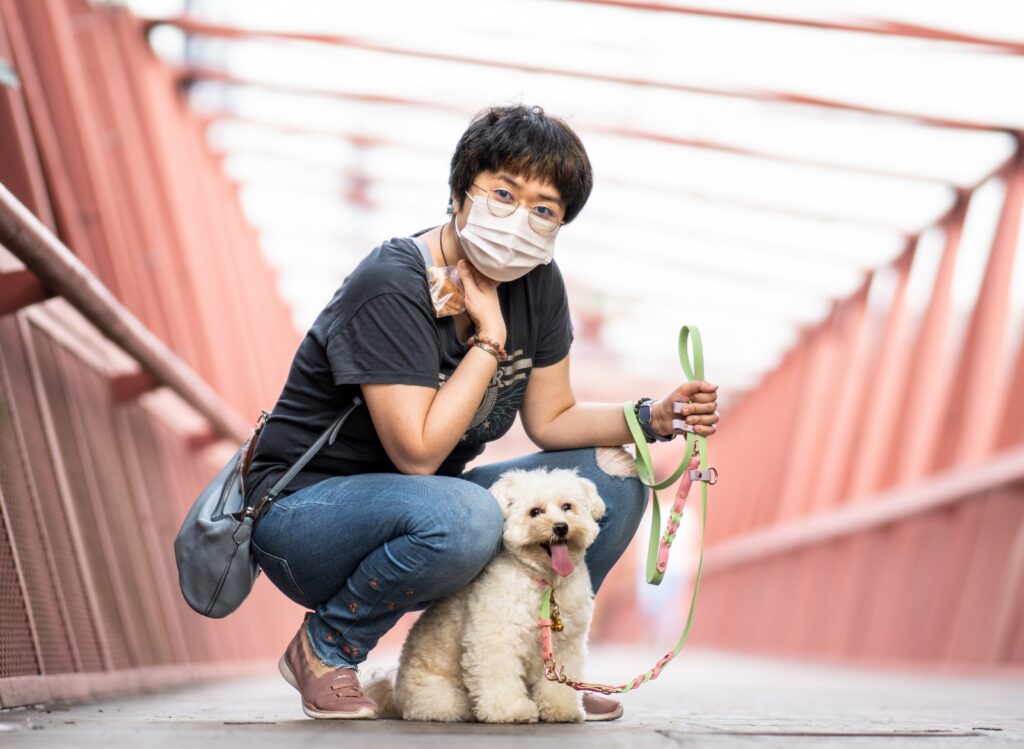Dogs love to scratch random parts of their bodies. Occasionally feeling itchy is normal among our furry friends. However, if they have been tirelessly scratching for quite some time, there might be underlying skin issues that need to be checked.
Medications can vary from items you can buy in your local pet shop to the ones prescribed by veterinarians. You might also consider alternative natural, safe, and effective medications for your dog’s skin issues. Let’s explore your options through this guide.
Soothing Itchy Skin
There are many reasons why your dog is suffering from itchy skin. Causes could vary from seasonal allergies and contact dermatitis to sarcoptic mange.
If you do dog grooming by yourself, you should consider investing in high-quality dog grooming supplies that promote healthy coats and prevent dog skin issues like itchy skin.
There are many triggers for itchy skin. While it’s frustrating to determine the reason yourself, there are safe, natural remedies to relieve the itching.
For example, herbal tea soaks contain green tea, calendula, and chamomile, which can help reduce inflammation and cool your dog’s irritated skin. You can just soak them in a tub for three minutes and soak your dog in the tub for five minutes.
If the dog frequently scratches only a few spots, you can soak a tea bag in a cup of hot water. Let it cool down, and pour it into the itchy spot afterward. Let it dry, and don’t rinse it yet.
In addition, a colloidal oatmeal bath can help ease the inflammation in your dog’s itchy skin. You just have to mix it with warm water and bathe your dog with it. If there’s no colloidal oatmeal available, you can just use regular oatmeal.
Moreover, aloe vera works well in soothing a dog’s itchy skin. You can guarantee that pure aloe vera is safe in case your dog licks the itchy area.
Treating Dry Skin
Dry skin isn’t a special case among canines. It could result in potential dandruff and enduring itchiness if not treated immediately. Some underlying reasons for a dog’s dry skin are low humidity, poor nutrition, allergies, infection, parasites, and metabolic disorders.
The good thing is that there are effective remedies that you can try. For instance, coconut oil has antiviral, antifungal, and antibacterial properties and moisturizes your dog’s skin.
Apple cider vinegar can also effectively remedy a dog’s dry skin. You can just mix an equal proportion of water and apple cider vinegar and pour it into a spray bottle. Apply it to specific spots, but ensure it doesn’t come in contact with hot spots since it could be stingy.
Managing Hot Spots
If your dog scratches a specific spot repetitively, it may result in hot spots. Symptoms of hotspots include redness and hair loss in an area of your dog’s body. Many factors can lead to hotspots, with allergic reactions and flea infestations being the most common.
The most effective natural treatment for hotspots is aloe vera. First, trim the fur surrounding the affected area and gently cleanse the hotspot with a clean cloth soaked in cool water. Next, apply a thick aloe vera gel layer to the hotspots’ area.
You should do this twice daily for several days and observe if the hotspot is healing. Aloe vera shampoo can also be a supplementary treatment whenever you bathe your dog. After bathing your dog, let them dry and apply a coat of aloe vera gel, as mentioned above.
Addressing Fleas and Ticks
Fleas and ticks are among the most common perpetrators of typical skin problems in dogs. All of the nonstop scratching and itching sensations were caused by these tiny pests infesting your dog’s fur.
It’s also important to note that there are dogs who are allergic to flea saliva, resulting in welts, swelling, and skin lesions. Flea bites can also lead to more serious cases like anemia.
As a furparent, the best thing you can do is seek natural remedies to eliminate these parasites. You should dilute lemon juice with water and add dog shampoo to the mixture. You can use this to bathe your dog.
Relieving Allergies
Your dog’s allergies can be triggered by many factors, such as dog food, other seasonal allergies, dog shampoo, and other topical products that could trigger a range of reactions. Common signs and symptoms of skin allergies in dogs include flakey skin, hair loss, excessive scratching, and rubbing of the ears.
Recently changed routines can prompt allergies. For instance, if you have switched to another dog food brand and saw the allergy coming out, it might be caused by the newly introduced food to your dog. The safest thing to do is to buy human-grade food products.
Check if these food items contain omega-3 fatty acids, which help maintain a healthy coat and skin.
Healing Wounds
There might be days when your dog gets extra energetic. Their excitement could sometimes lead to accidents, resulting in open wounds. Just like treating human wounds, you can use gauze or a clean, dry cloth to stop bleeding in a dog’s fresh wound.
Wounds could cause inflammation, so using natural antiseptics like turmeric, aloe vera, coconut oil, and witch hazel can speed up the healing process of your dog’s wound. Dogs hate the spicy smell of turmeric, so they would avoid licking the wound where you’ve administered the natural remedy.
Dealing with Mange
Mange mites are tiny parasites that inhabit and feed on dogs’ skin cells. Your dog is most vulnerable to mange when their immune system is weak. In some cases, mange could be contagious. Your dog may get mange through contact with another animal with mange or through infected bedding.
Plain yogurt can be used as a natural remedy for mange. It contains acidophilus, which can help fight mange mites. Just apply it to your dog’s ear to ensure they can’t lick it off. You can also add apple cider vinegar to your dog’s food. It can help your dog manage itchy and irritated skin caused by mange.
Conclusion
While you can administer the natural remedy we’ve mentioned here by yourself, it’s important to consult a veterinarian for a proper diagnosis. Follow the doctor’s instructions and buy all the medications needed. If you really want to give natural remedies a try, you can talk to the vet about it and see what remedies can be suitable for your fur baby.











































